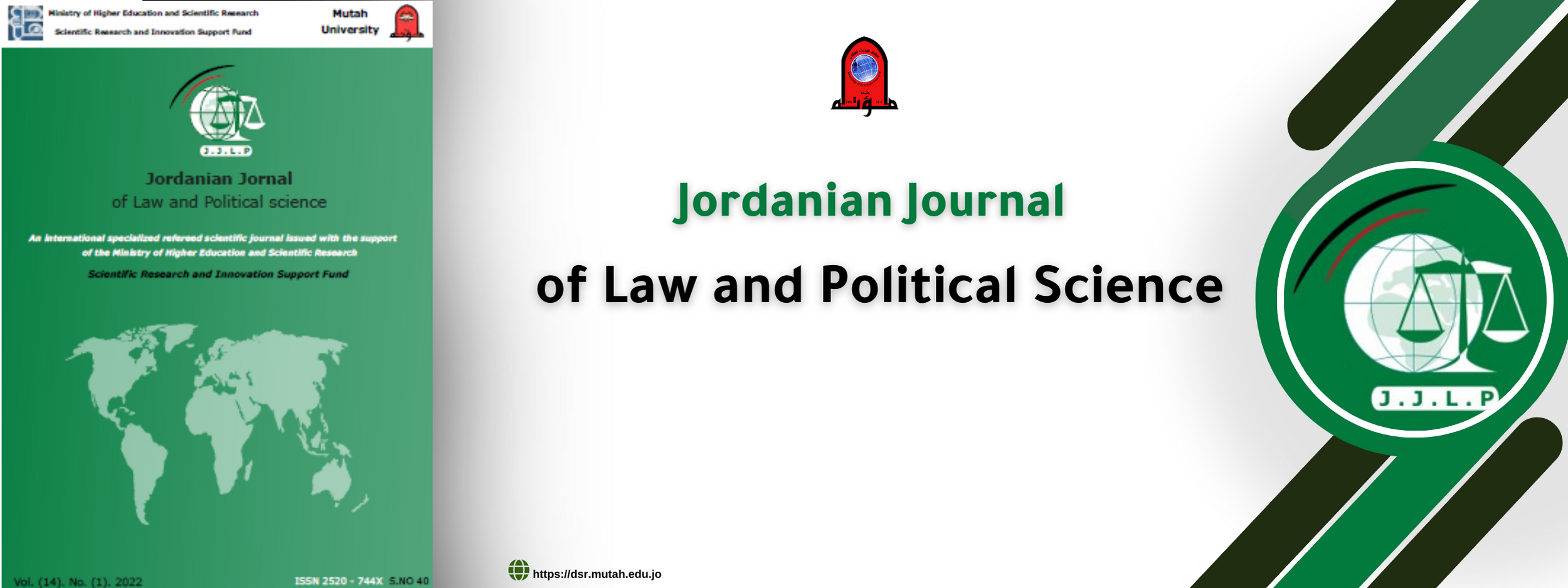Political Reform in Jordan: An Analytical Reading of the Jordanian Parliamentary Election Laws 2012-2020 and their Impact on Political Participation
DOI:
https://doi.org/10.35682/jjlps.v16i1.521Keywords:
Political reform, political participation, election lawAbstract
This study attempts to analyze and evaluate the depth of political reforms, transformations, and modifications that have taken place in Jordan, especially since 2012-2020, and the changes they have brought to the reality of political participation as one of the most important indicators for measuring the success of political reform and enhancing and maximizing the democratic process. The study adopted the legal approach to identify Jordanian election laws during 2013-2020 and benefited from the systems analysis approach to analyze and evaluate the role of these laws and their reflection in the electoral participation of Jordanian citizens.
According to the study, Jordan's political reform process did not align with or reflect the reality of the country's political, economic, social, and cultural situation. Furthermore, it failed to achieve the desired or anticipated outcomes, and the most notable indication of this may be the decline in election participation and the growing crisis of public confidence in the legislature and government. Given the study's findings, it is recommended that efforts be made to firmly establish the notion of citizenship, including its legal and political aspects as well as its associated rights and duties, without discriminating among citizens based on their ethnic background, racial origin, or tribe. Adhering to this norm in dealings with the state, its institutions, and its citizens would also improve Jordanians' actual political participation.







